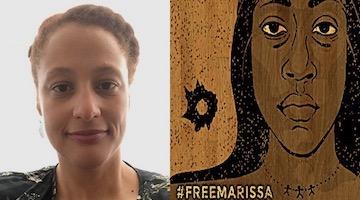Public pressure works. Some local entities are not willing to work with ICE anymore.
“Our goal is not just to put money on their commissary, but for them to be free.”
In this feature, we ask organizers involved in mutual aid projects to share a little bit about their work. We understand mutual aid work as the part of social movement organizing that meets people's direct needs. Unlike charity work, however, mutual aid is part of a broader strategy to address the root causes of injustice by mobilizing people to dismantle structures of domination and build the world we want.
Mutual aid efforts are proliferating as people respond to the Coronavirus pandemic. You can track emerging projects atmutualaidhub.org, and we recommend checking out this useful guide from Mutual Aid Disaster Relief about how to start COVID-19 mutual aid projects and do the work safely and effectively. We also recommend the Big Door Brigade’s Mutual Aid Toolbox and this shortmutual aid explainer video, for starting conversations about what mutual aid is and why it is a vital tactic to expand right now.
This week, we had the honor of interviewing La Resistencia.
Dean Spade and Roberto Sirvent: Can you please tell readers of the Black Agenda Report a little about your background and the mutual aid work you have been involved in?
ShaCorrie: My name is ShaCorrie. I’m a mother of two now, single and working. My former partner and children’s father was detained by ICE on January 2018. Since then, we haven’t been able to adjust to him being gone abruptly and we are still dealing with the ramification of his detention and deportation. I’m a born US citizen as well as my children. Witnessing injustices to people inside made me stay with La Resistencia for what I saw and I endured. I have two people, my kids, looking at me and what we will do, and what can be done even if some say nothing can be done.
Maru: My name is Maru, an undocumented community organizer and single mom. I’ve organized for immigrant justice for two decades now. For the past six years our group, La Resistencia, has focused on working alongside people detained at the Northwest Detention Center in Tacoma, WA, to shut it down and end all detentions and deportations in our state.
Dean and Roberto: How does this work fit into the broader struggle for change you are working on? How does it mobilize for change rather than merely being a "band aid" on a harmful system?
ShaCorrie and Maru: Our goal of shutting down the Northwest Detention Center (NWDC) can’t be accomplished without working in tandem with people detained. And we can’t ignore the terrible daily conditions people face while imprisoned every single day there. By developing mutual aid work that exposes governmental agencies, corporations, and those involved in exploiting and oppressing human beings based on their national origin and skin color, i.e. dollar-a-day work program, medical neglect, solitary confinement, retaliation, etc., we build towards the larger goal. Our only tool is public pressure through collaboration with people detained, and it works: now even politicians are paying attention, some local entities are not willing to work with Immigration Customs Enforcement (ICE) anymore, there are no deportation flights taking off from Seattle King County Airport anymore, among other things so far.
“We can’t ignore the terrible daily conditions people face while imprisoned.”
Our mutual aid work includes daily communication with people detained through our hotline number. Our work includes phone calls, visits, demonstrations outside NWDC, radio, building relationships with family members, supporting hunger strikers, building campaigns against individual detentions, supporting detainees’ and deportees’ families, and more. We developed the Community Fund – we sell t-shirts at all our actions and events. The money goes to making deposits to commissary accounts of people detained. Most volunteers answering calls from people detained have either had experience with the detention and/or deportation process. We use our experience to further the work of the organization and build shared analysis with people detained about the system that is profiting off them. For example, when people detained call to request a deposit we explain where the money comes from and the process to make deposits, and we also share that our goal is not just to put money on their commissary, but for them to be free. We talk about how GEO corporation, which owns the Northwest Detention Center, is making money off them being in this cage. This simple and truthful explanation helps us build political education and trust amongst all of us, and differentiates our work of organizing and mutual aid from charity.
Have you seen dangers of co-optation of the mutual aid work you have done? What structures or methods have the organizations or projects you work with put in place to address that danger?
Some of us have been around for a long time and we have experience in dealing with cooptation of our work. Sadly it’s part of the struggle. Precisely fighting detentions and deportation at NWDC put us in opposition with groups that have advocated for improving conditions while also advocating for keeping NWDC open. We welcome outside support for those that are incarcerated or finally able to leave that cage, but not at the cost of protecting, defending and perpetuating the same oppression that put us there in the first place.
One thing that helps prevent coopting is that we are very clear on our stand and philosophy – we are abolitionists, and work really hard to not fall into the identity politics game. Nor are we in competition with anyone. We have created a hard line of resistance and disobedience; we don’t work with the system – none of our protests are done with police permission. We don’t expect the system to end our oppression, and we respect and follow the leadership of those detained. By exposing the system, we also show that we are our own leaders and that we don’t need saviors. We push back on groups or individuals that may try to play that role and coopt our work. We invite groups to work with us, and to learn to follow the leadership of those detained.
What are the pitfalls of mutual aid work, from your experience?
The detention and deportation system is built to be a daily emergency; time is key when people are being deported. If somebody drops the ball it’s harder to come back and fix it, and takes away time from other work. We strive for not falling into emergency mode only, nor to focus solely on individual needs. It’s also hard to convey what it is exactly we do. Most people are not familiar with this model but they are with charity and social services, and non-profit models. For example, during hunger strikes we make sure people understand we support those taking action, but we also support everyone detained regardless. We have learned to balance the priority of those on hunger strike and suffering retaliation while organizing the shutdown of the entire place. That means keeping our eye in the long-term fight while fighting the daily emergencies.
It’s also a challenge trying to work with other groups that may not be aligned with our goal. We know we can’t win alone, and in many instances we need to reach out to social service organizations.
Do you think mutual aid work has any special or particular role in the current conditions/crises?
Mutual aid has a really critical role in our grassroots movements, now more than ever when we are being attacked and divided in ways we couldn’t have imagined. Charity was created as a way to keep systems of power and control in place while making us believe this is the only way to respond to oppression. Charity robs us of our people’s solution strategy, and strengthens the hierarchies, class, caste, etc. used to keep us in our place, and keep us from organizing for a long-term change. Therefore mutual aid is a way to go about daily survival and organize for systems change, not reform.
Do you have ideas about how mutual could expand or mobilize more people?
As long as we are able to explain the difference between systems change and reform, and mutual aid and charity, it’s possible to mobilize more people. Especially organizing under the current fascist regime, we must emphasize this difference to stop good intentions from becoming part of the same system we are trying to undo. For example, during the implementation of the Zero Tolerance policy, a lot of people came our way asking us where they could donate items for children in detention. We took advantage of their good intentions and explained that even if the cage is golden, it’s still a cage. We pushed groups to fight against all detentions versus improving detention conditions or stopping only one type of detention. We offered the list of actions people could take here in town, coming to Tacoma and working with us to shutdown the detention center. A lot of people did follow and are still supporting our work today.
Mutual aid is a practical way to get involved, it’s a tangible action that those that want to “help” can take and learn to collaborate instead.
Are there any examples of other mutual aid work, historical or contemporary, that particularly inspire you or that you have used as a model?
We are living in one right now; within La Resistencia we support each other beyond words. When we distribute funds, we prioritize Black people, indigenous people, and people of color that are in need of financial support. We also prioritize people who have been placed in deportation proceedings due to their work with us and against immigration enforcement, detention, and deportations. ICE has shown that they target activists who stand up to them. Our model is also based on mutual aid happening every day inside NWDC between people in there. Every day people detained call us to tell us about others in need of support. During hunger strikes, organizers that have been retaliated against and placed in solitary confinement use our communications to find out how the others are doing. People detained inside NWDC have been our best example of solidarity and mutual aid with the long-term goal of liberation for all.
“ICE has shown that they target activists who stand up to them.”
Our model inspires us because it doesn’t end with deportation. It can be emotionally and financially debilitating but we have learned to support each other, and provide community care to our members and their families even after deportation.
We are inspired by work we see happening in Mexico that shows how mutual aid is part of revolutionary change. The Zapatista movement is a great example. The Zapatistas seek independence from the Mexican government, and have created independent municipalities. They are able to provide for basic needs outside of the colonial model, creating their own co-operative schools, clinics, food systems and more. Also in Mexico for many years we have used “tandas.” A tanda is a people’s savings account, where friends or relatives pull in savings for a specific period of time, and distribute it every week or month (depending how long the tanda will last) based on random assignments or need. Everyone who is part of it can have a chance to contribute and to use the shared resources when they need to.
What can readers of the Black Agenda Report do to support your work?
Support our work! First, read up about ending detention and deportations, abolishing ICE. Second, if you are able to, talk about this with others, share the knowledge and the rage. Third, join us to help fight the fight! It’s long and exhausting, but it’s also critical. We have to do it ourselves, we can’t wait for others to do it. This is what it takes to commit to our liberation. Follow us, donate, and come to our actions! @LaResistencia on Twitter and @laresistencianw on Instagram and Facebook.
Dean Spade is the creator of the mutual aid toolkit at bigdoorbrigade.com. He has been working in various poverty-focused and abolitionist mutual aid projects for the past 20 years. He is the author of Normal Life: Administrative Violence, Critical Trans Politics and the Limits of Law (Duke University Press 2015). His video projects and writing are available atdeanspade.net.
Roberto Sirvent is Professor of Political and Social Ethics at Hope International University in Fullerton, CA, and an Affiliate Scholar at Yale University’s Interdisciplinary Center for Bioethics, where he directs the Race, Bioethics, and Public Health Project. He is co-author, with fellow BAR contributor Danny Haiphong, of the book, American Exceptionalism and American Innocence: A People’s History of Fake News—From the Revolutionary War to the War on Terror.
COMMENTS?
Please join the conversation on Black Agenda Report's Facebook page at http://facebook.com/blackagendareport
Or, you can comment by emailing us at comments@blackagendareport.com















